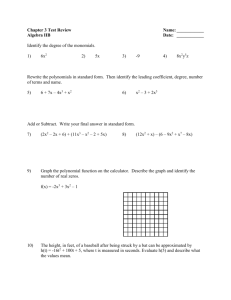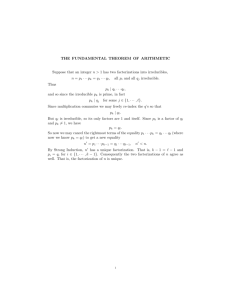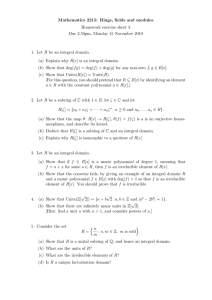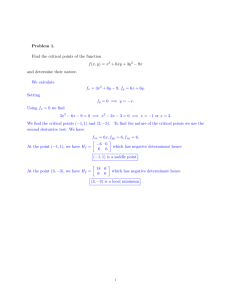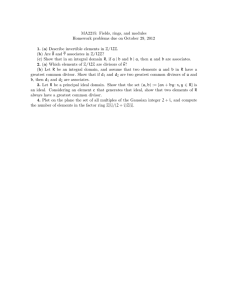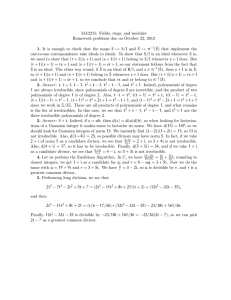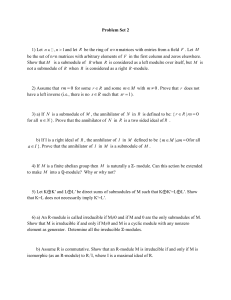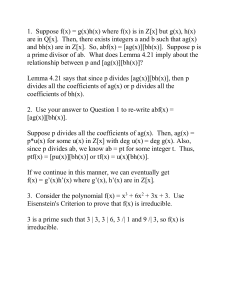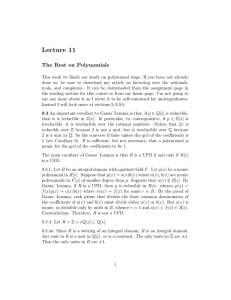Suppose F is a field and f(x) = g(x)h(x)
advertisement
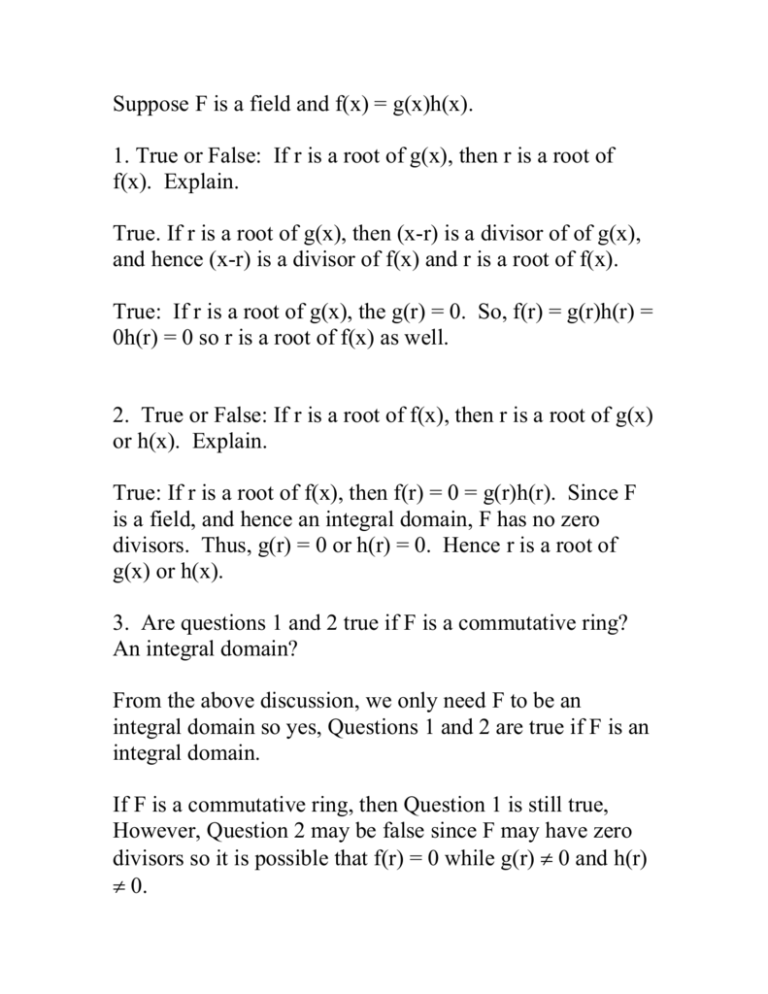
Suppose F is a field and f(x) = g(x)h(x). 1. True or False: If r is a root of g(x), then r is a root of f(x). Explain. True. If r is a root of g(x), then (x-r) is a divisor of of g(x), and hence (x-r) is a divisor of f(x) and r is a root of f(x). True: If r is a root of g(x), the g(r) = 0. So, f(r) = g(r)h(r) = 0h(r) = 0 so r is a root of f(x) as well. 2. True or False: If r is a root of f(x), then r is a root of g(x) or h(x). Explain. True: If r is a root of f(x), then f(r) = 0 = g(r)h(r). Since F is a field, and hence an integral domain, F has no zero divisors. Thus, g(r) = 0 or h(r) = 0. Hence r is a root of g(x) or h(x). 3. Are questions 1 and 2 true if F is a commutative ring? An integral domain? From the above discussion, we only need F to be an integral domain so yes, Questions 1 and 2 are true if F is an integral domain. If F is a commutative ring, then Question 1 is still true, However, Question 2 may be false since F may have zero divisors so it is possible that f(r) = 0 while g(r) 0 and h(r) 0. Factor the following polynomials into irreducibles in Z5[x]. Be sure to explain how you know your factors are irreducible. 4. 2x4 + x3 + 3x2 + 2x + 4 2x4 + x3 + 3x2 + 2x + 4 = (x + 3)(x + 3)(2x2 + 4x + 1) x + 3 is irreducible because it’s degree 1. 2x2 + 4x + 1 has no roots in Z5, and it's degree 2, so it’s irreducible. 5. x4 + x3 + 2x2 + 4x + 1 x4 + x3 + 2x2 + 4x + 1 = (x2 + 3x + 4)2 x2 + 3x + 4 has no roots in Z5 and it’s degree 2 so it’s irreducible.

